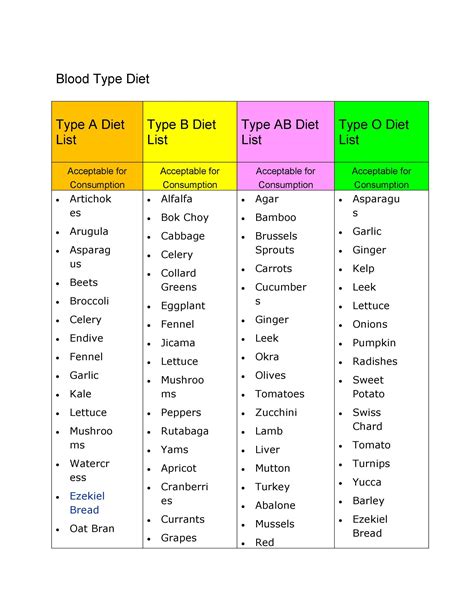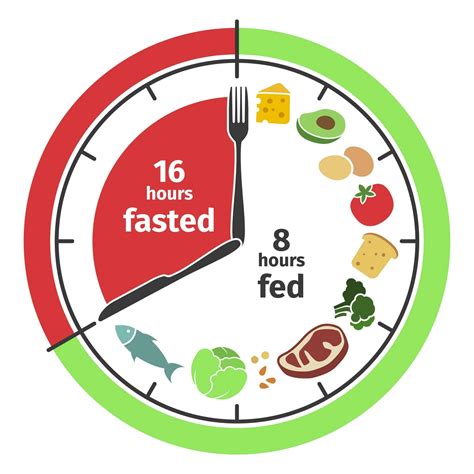Discover the benefits of a monotrophic diet, learn how to create a meal plan, and get tips for successful implementation. See the results of following this diet.
Understanding Monotrophic Diet
Contents
Monotrophic diet is a dietary approach that involves consuming only one type of food at each meal. This means that you eat the same food for breakfast, lunch, and dinner. The idea behind this diet is that by eating one type of food at a time, the body can better digest and absorb the nutrients from that food, leading to improved digestion and overall health.
Proponents of the monotrophic diet believe that eating this way can help to reduce digestive issues, improve energy levels, and even aid in weight loss. They argue that by simplifying the diet in this way, the body can focus on efficiently processing and utilizing the nutrients from the food, rather than being overloaded with a variety of different foods at each meal.
Those who follow the monotrophic diet often choose to eat fruits, as they are easy to digest and provide a wide range of essential nutrients. Additionally, fruits are high in water content, which can help to keep the body hydrated and support overall health.
It’s important to note that the monotrophic diet may not be suitable for everyone, especially those with certain medical conditions or dietary restrictions. It’s always best to consult with a healthcare professional before making any significant changes to your diet.
Benefits of Monotrophic Diet
Following a monotrophic diet can have several benefits for your overall health and well-being. One of the main advantages of this type of diet is that it can help to simplify your eating habits. By focusing on eating one type of food at a time, you can avoid the complications and confusion that can come with planning and preparing complex meals. This can be especially helpful for individuals who struggle with decision-making or who have busy schedules that make meal preparation a challenge.
Another benefit of a monotrophic diet is that it can provide an opportunity for increased nutrient absorption. By consuming a higher quantity of a single type of food, your body can more easily absorb and utilize the nutrients present in that food. This can be particularly beneficial for people who struggle with digestive issues or nutrient deficiencies, as it can help to support overall health and vitality.
Additionally, many individuals who follow a monotrophic diet report experiencing improved digestion. By simplifying the foods you eat and allowing your body to focus on digesting one type of food at a time, you may notice a reduction in digestive discomfort and bloating. This can lead to a greater sense of comfort and well-being after meals.
Finally, some people find that a monotrophic diet can help to reduce cravings for unhealthy foods. By focusing on consuming whole, unprocessed foods in their natural state, you may find that your desire for sugary, fatty, or processed foods diminishes. This can support a healthier relationship with food and may contribute to a more balanced and sustainable approach to eating.
Creating a Monotrophic Meal Plan
Creating a monotrophic meal plan can be a challenging yet rewarding journey towards better health. A monotrophic diet focuses on consuming only one type of food at each meal, such as eating only bananas for breakfast, apples for lunch and oranges for dinner. This plan eliminates the variety of foods that are typically consumed in a traditional diet, and instead emphasizes the consumption of a single type of food at each meal.
When creating a monotrophic meal plan, it is important to consider the nutritional value of the chosen food and ensure that it provides the necessary nutrients for a balanced diet. For example, if choosing to eat only bananas for breakfast, it is important to consider the amount of carbohydrates, fiber, and essential vitamins that the body needs to function optimally. Therefore, it is crucial to select a variety of fruits and vegetables to incorporate into the meal plan in order to meet the body’s nutritional needs.
In addition to selecting a variety of fruits and vegetables, it is important to include a source of protein and healthy fats in the meal plan. This can be achieved by incorporating nuts, seeds, and legumes into the diet. By incorporating a variety of foods into the meal plan, individuals can ensure that they are meeting their nutritional needs while still adhering to the principles of a monotrophic diet.
It is also important to create a schedule for the meal plan to ensure that meals are spaced evenly throughout the day. This can help to regulate blood sugar levels and prevent overeating. By planning meals in advance, individuals can ensure that they are consuming a variety of foods throughout the day and avoiding the temptation to indulge in unhealthy snacks.
In conclusion, creating a monotrophic meal plan requires careful consideration of nutritional needs and food variety. By incorporating a variety of fruits, vegetables, protein, and healthy fats into the meal plan, individuals can ensure that they are meeting their nutritional needs while still adhering to the principles of a monotrophic diet.
Tips for Following Monotrophic Diet
Following a monotrophic diet can be challenging at first, especially if you are used to consuming a wide variety of foods. However, there are several tips that can help make the transition to a monotrophic diet easier.
First and foremost, it is important to start slowly when beginning a monotrophic diet. Instead of completely overhauling your diet all at once, consider gradually incorporating more mono meals into your daily routine. This can help your body adjust to the new eating pattern without feeling overwhelmed.
Choose a variety of fruits to include in your mono meals. Different fruits provide different nutrients, so by incorporating a variety of fruits into your diet, you can ensure that you are getting a wide range of essential vitamins and minerals.
Listen to your body throughout the transition to a monotrophic diet. Pay attention to how certain foods make you feel and adjust your diet accordingly. If you find that you are not feeling satisfied or are experiencing any negative side effects, consider making changes to your mono meal choices.
Stay hydrated while following a monotrophic diet. It is important to drink plenty of water throughout the day to help support digestion and overall well-being. Additionally, incorporating hydrating fruits, such as watermelon and cucumber, into your mono meals can also help keep you hydrated.
Results of Monotrophic Diet
Results of Monotrophic Diet
Following a monotrophic diet can have numerous beneficial effects on the body, including weight loss, improved digestion, increased energy levels, and overall better health. Many individuals who have adopted this dietary approach have reported significant changes in their body composition, mental clarity, and overall well-being. One of the primary results of a monotrophic diet is improved digestion and nutrient absorption. By focusing on consuming a single type of food at each meal, the digestive system is able to process the food more efficiently, leading to better nutrient absorption and overall improved digestive function.
Another important result of following a monotrophic diet is the potential for weight loss. Many individuals have reported shedding excess pounds and achieving their desired weight by adopting this dietary approach. By consuming foods that are easy to digest and low in calories, individuals can effectively manage their weight and improve their overall body composition.
In addition to weight loss and improved digestion, many individuals have experienced increased energy levels and mental clarity as a result of following a monotrophic diet. By providing the body with simple, easily digestible foods, individuals can experience sustained energy levels throughout the day and improved cognitive function. This can lead to a greater sense of vitality and overall well-being.
Overall, the results of following a monotrophic diet can be highly beneficial for individuals looking to improve their health and well-being. From improved digestion and weight management to increased energy levels and mental clarity, this dietary approach has the potential to have a significant impact on an individual’s overall health and vitality.












